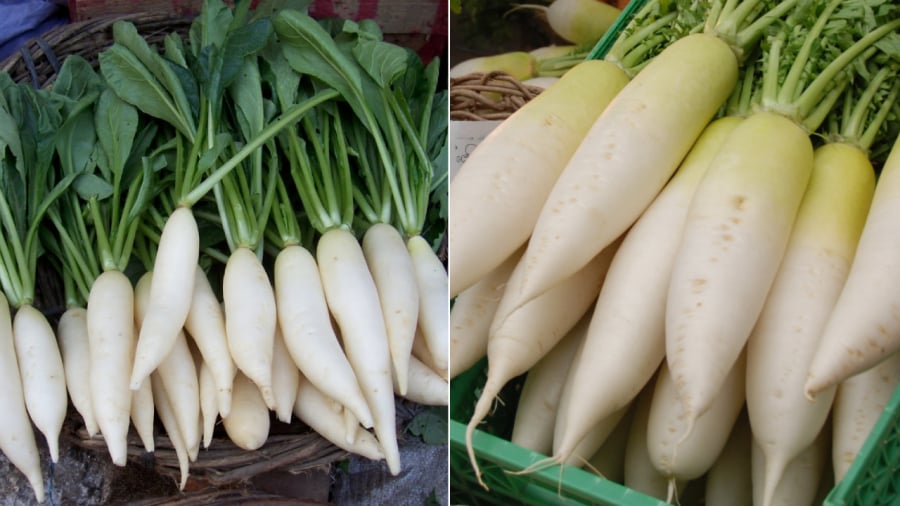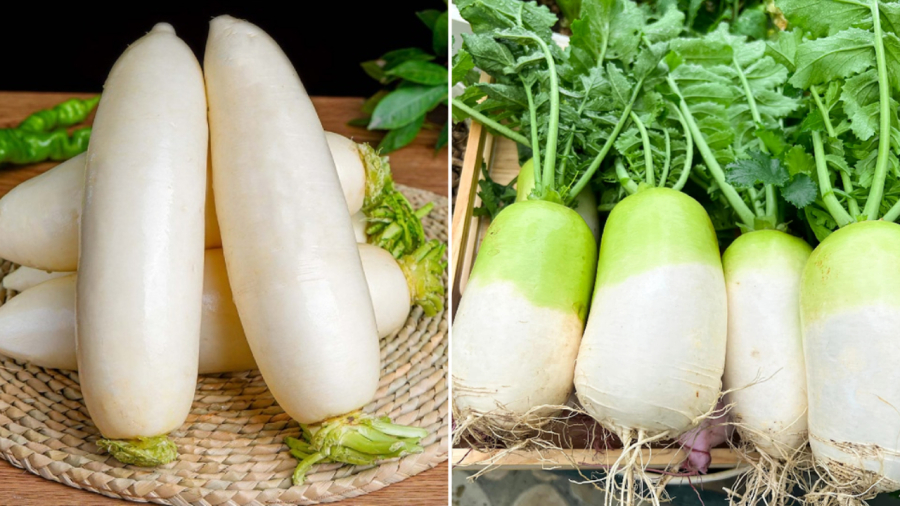Nutritional Value of White Turnips
White turnips are often compared to winter ginseng. This type of food has many health benefits. Each 100 grams of white turnips can provide 1.4g of protein, 3.7g of carbohydrates, 1.5g of cellulose, 40mg of calcium, 41mg of phosphorus, 1.1mg of iron, 30mg of vitamin C, 0.06mg of vitamin B1, 0.06mg of vitamin B2, 0.5mg of vitamin PP…
According to Oriental medicine, white turnips have a sweet, slightly spicy, bitter taste, neutral nature, and non-toxic. This type of food stimulates digestion, protects the stomach, treats coughs, relieves phlegm, and helps with urination… White turnips can be used fresh or dried.
Studies have shown that white turnips can reduce cholesterol levels in the body. A diet rich in white turnips can reduce LDL cholesterol and neutral fats, significantly increase HDL cholesterol levels.

In addition, white turnips contain antibacterial substances and active tendons, which help reduce pain effectively. Therefore, people also use the peel of turnips to apply on sore muscles or joints to reduce pain.
White turnips contain betaine, a biologically active compound that supports liver function and prevents cardiovascular diseases.
Nitrates in turnips can help increase blood flow to the brain and improve brain function.
Foods to Avoid Eating with White Turnips
– Ginseng
White turnips should not be consumed together with ginseng because it will reduce the nutritional value of both. In addition, white turnips are considered to have cooling properties while ginseng is believed to strengthen Qi. When these two foods are combined, they will neutralize each other and not provide health benefits.
– Oranges
Do not consume white turnips with oranges as the flavonoids in oranges and thiosulfates in white turnips can combine to produce a reaction and generate a large amount of thiocyanate. When the level of thiocyanate in the body is too high, it will impair thyroid function and increase the risk of goiter.

– Carrots
White turnips contain a high amount of vitamin C. Carrots contain a lot of ascorbic acid, which can degrade vitamin C. Therefore, consuming carrots and white turnips together will cause a significant loss of vitamin C.
– Herbal medicines
White turnips have cooling properties and can increase excretion. If you are taking herbal medicines, it is advisable to limit the consumption of white turnips to avoid affecting the effectiveness of the medicine.
People Who Should Avoid Eating White Turnips
– People with digestive issues
Those who have digestive issues or damaged gastric mucosa should limit their consumption of turnips, especially raw turnips. Although turnips contain a lot of water and have a moisturizing effect on the intestines, its spicy taste can stimulate the gastric mucosa and cause discomfort.
– People with weak constitution
Individuals with a weak constitution or suffering from diarrhea should limit the consumption of cold-natured foods like turnips. Eating turnips at this time will worsen the condition of diarrhea, cause discomfort in the digestive tract, and be detrimental to the body.





































